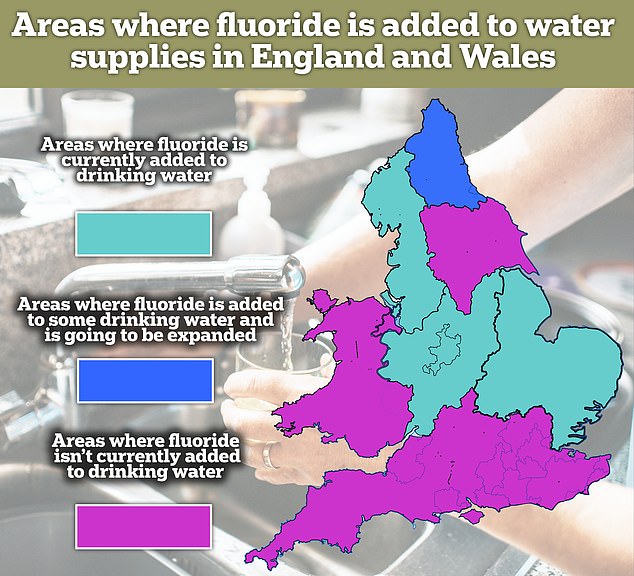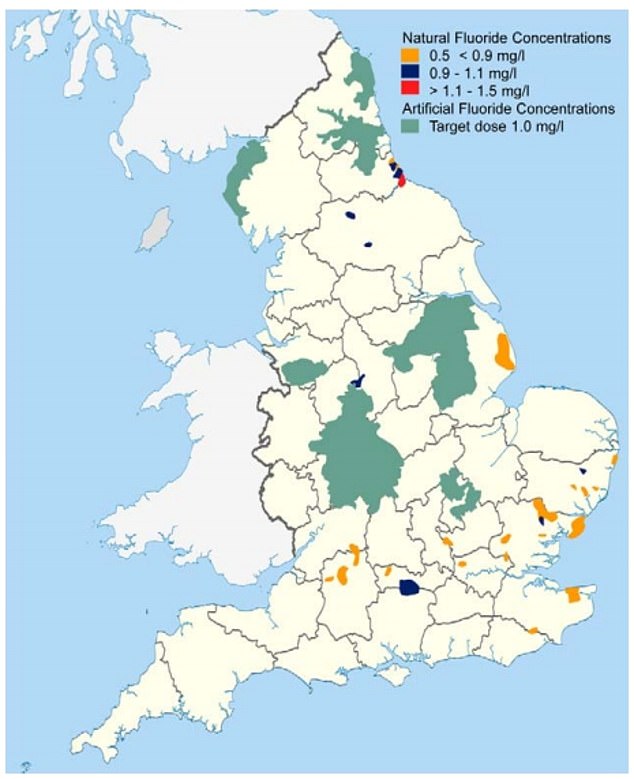The UK government’s plan to add a chemical to tap water poses “an unreasonable risk to human health”, according to a US court ruling.
Earlier this year, ministers announced the upcoming launch of a plan to add fluoride to the drinking water supplies of a further 1.6 million Britons in a bid to improve the country’s oral health.
But at the conclusion of a seven-year legal battle between environmental health chiefs and water safety advocates, a California judge declared that higher levels of the chemical are “dangerous,” particularly to children.
The judge ordered the U.S. Environmental Protection Agency to further regulate fluoride levels in American tap water.
A California judge has ruled that fluoride in tap water must be controlled because of its “unreasonable” risk to children’s health.
The court heard “substantial and scientifically credible evidence” of health harms, including findings suggesting that fluoride exposure can lower IQ in children.
Judges in the United States have set the safe level of fluoride in water at 0.4 mg/L. The UK government wants the levels to be double.
Although once considered a tinfoil hat theory, scientists are increasingly warning about the dangers of exposure to high doses of the naturally occurring mineral over a lifetime.
Stephen Peckham, professor of health policy at the University of Kent, said The telegraph: ‘The ruling is important because it forces the US regulatory authority to take action, and it is quite clear that beyond a particular level there is an unacceptable risk.
‘The judge’s opinion is that the evidence is overwhelming.
“Fluoridation has brain implications and my personal opinion is that the weight of evidence is very much against community fluoridation.”

This map shows areas in England and Wales where fluoride is added directly to the drinking water supply. Some areas of the UK have naturally high levels of the mineral in their water and are not represented on this map.
Several studies published in recent years have raised concerns about high levels of fluoride and its links to health problems.
Earlier this year, American experts examined a group of 230 mother-child pairs and found that those with higher levels of fluoride during pregnancy were more likely to have a child with a neurobehavioral problem by the time the baby turned three.
These problems included anxiety symptoms and emotional regulation.
Children born to women with higher levels of fluoride in their urine were also more likely to suffer from headaches and stomachaches, the authors noted.
Other studies have linked excessive amounts of the mineral to babies born with Down syndrome, as well as kidney stones and some types of cancer.

According to the British Fluoridation Society, only 6.1 million Britons (around 10 per cent of the population) currently receive water with sufficient fluoride levels to benefit oral health. These areas include Hartlepool, Easington, parts of North Hampshire and South Berkshire.
However, the NHS and experts such as the government’s chief medical officer, Sir Chris Whitty, say these claims are not supported by evidence.
Professor Whitty has previously described them as “exaggerated and unproven”.
Health chiefs have estimated that adding fluoride to more water supplies in the UK could prevent two-thirds of hospital admissions for cavities, an issue costing the NHS and, by extension, taxpayers millions.
Some 5.8 million Britons live in areas where fluoride (also added to toothpastes and mouthwashes) is put in tap water, about a tenth of the population.
However, the Government plans to extend this measure to another 1.6 million people in the northeast.
The 5.8 million figure does not include areas in the UK where water supplies are naturally rich in fluoride; around 300,000 people drink supplies naturally fluoridated by rocks in the soil.
Fluoridation is much more common in the US, where about 73 percent of the population adds the mineral to their water supply at a concentration of about 0.7 mg per liter.

